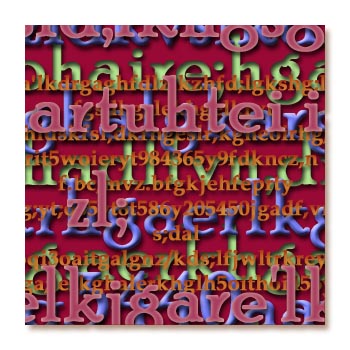 Language is an indispensable tool for learning and, lest we dig our own academic graves by failing to utilize language to our best advantage, a brief survey of the technology of words as tools is in order. We know that crows and anteaters use tools, and that rock-dwelling mammals like marmots have specific warning calls (that can seem to us like words) to announce the existence of certain predators. And we might even be aware that a certain species of bird imitates these warning calls to mess around with animals to its own advantage. Yet, none of these creatures ever wrote a sentence let alone proofread an AU essay. Being a student makes us special among a special species, at least as far as myriad meanings are concerned.
Language is an indispensable tool for learning and, lest we dig our own academic graves by failing to utilize language to our best advantage, a brief survey of the technology of words as tools is in order. We know that crows and anteaters use tools, and that rock-dwelling mammals like marmots have specific warning calls (that can seem to us like words) to announce the existence of certain predators. And we might even be aware that a certain species of bird imitates these warning calls to mess around with animals to its own advantage. Yet, none of these creatures ever wrote a sentence let alone proofread an AU essay. Being a student makes us special among a special species, at least as far as myriad meanings are concerned.
Our academic minds can barely conceive of such an uncivilized time where words meant nothing and only the bubbling soup of our stream of awareness expressed the cauldron of what it means to be a living being on planet Earth. In fact, symbolic culture as undertaken by words is incredibly recent in terms of the planet. Whether we never write in cursive or still make assignment outlines with paper and pen, we are still inhabiting the same recent realm connoted by a verbal-written binary.
That electronic tablet that fails to allow us to smoothly type a paragraph with our bare fingers, let alone a final essay for an AU course, is itself not really a new invention. Sigmund Freud in his time described the advent of a children’s toy popular in some circles to this day: the mystic writing pad. Freud questionably believed in a core “concept of verbal representation as preconsciousness” wherein lies the key method in which we get done the work of expressing ourselves (Derrida, 197). However, as Jacques Derrida notes, and as we see with animals and pre-humans using tools but not words, meaning is not itself embedded in words. Words and discourse, logos, and phonics, combined into elegant passages of prosaic meaning when we write them. Whereas animals’ communications mean general things with scent markings and body language, our human purposes are relatively murky as we add complexity to basic sentiments. There’s a reason poetry is magical! Anyone who’s ever spent a quiet afternoon engaging in babytalk with kittens and infants knows that the distance between feeling and meaning, (and, above all, meanings involving sustenance such as snacks) abides in galaxy almost unimaginably distant from the metaphoric landscape of the written realm.
Derrida, in his essay “Freud and the Scene of Writing” summarizes the distance to here implied by the yawning gulf between animal instinct, communicable yet prelinguistic, and human discourse, expressed through the paradoxically finite (in words) and infinite (in potential) realm of language. “Logo-phonecentrism is not a philosophical or historical error which the history of philosophy…would have rushed into pathologically, but is rather a necessary, and necessarily finite, movement and structure: the history of the possibility of symbolism in general (before the distinction between man and animal, and even before the distinction between the living and the nonliving” (Derrida, 197)
To be really living as a human might well be to be applying our reading and writing skills and, not to overstate the point, to be applying our best brains to our AU studies! We aren’t learning academically if we simply do what we’ve always done. To break new ground we have to shatter preconceptions and allow ourselves to be carried away, so to speak, by our course material. It’s bliss and a bit unsettling but if it was easy we’d just, well, watch cute videos on our computer tablets.
Consider what our life would be like without the written word and without the capacity to express ourselves in writing. No Tower of Babel could hope to express more than an essential desire to express with language what had hitherto been inexpressible. The notion that fact expression without language erects a barrier between us, a wall that would make falling in love as we know it (let alone becoming passionate about our chosen academic discipline) as impossible as pushing a wheelbarrow without a wheel.
So it’s quite natural for us as humans to consider symbolic culture as the basis of every meaning we make or discover. Consciousness as we know it is inherently problematic (words are only bursting bubbles from the soup of thought) without our selves there to say what we think and feel. In this sense, to learn at AU is to truly become who we are, and were, and to embody the future selves that we hope to become.

